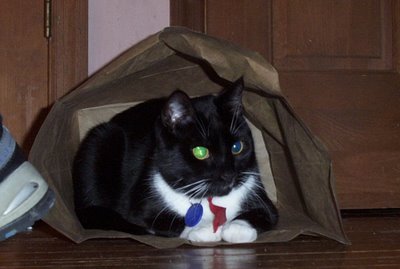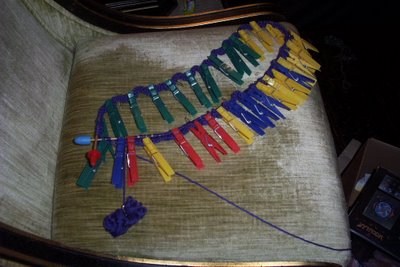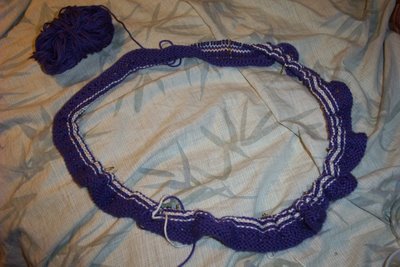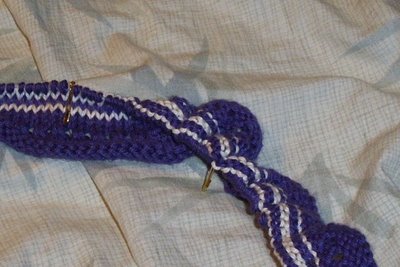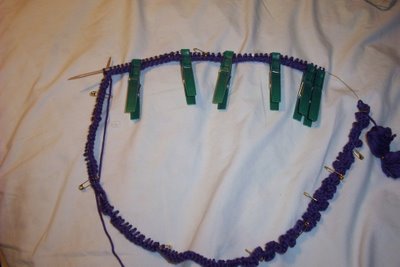Stephen King and I go way back. In the summer of 1978 I was eleven years old and a borrowed hardbound copy of
The Shining was the first still-on-the-bestseller-lists adult novel I ever read. It was also the most riveting and the scariest: I had a clear shower curtain for
decades thanks to the lady in the bathtub. I also reread the book at least four times in the following three months; that's how compelling the characters and the plot were.
Of course I went back to pick up
Carrie and
'Salem's Lot and forward to read everything he wrote, sometimes in paperback but more often hot off the hardbound presses. Stephen King could lure me into a story in a way that few other authors could and he always had a fine yarn to spin. Not only that but I adored the fact that he had started off with little and earned all his fame and fortune with his words alone--that self-made part charmed me.
For many years I was a self-identified "HUGE Stephen King fan." Oh sure, I despised most of
Cujo and flat-out stopped reading when I realized "that kid's gonna die in that car!" but I chalked that up to my hatred of all animal allegory. Given my own peculiar life I decided very early into
Misery that it was too scary and uncomfortable for me and put it down right then--but I always considered "one too scary even for me" to be high praise. I also admit to having skimmed big parts of the middle of
It and a little of
The Tommyknockers but I
liked them, promise! (I still smile when I think about those aliens not knowing about AC/DC converters.)
I enjoyed watching Mr. King's style change as his career lengthened. I know he and the critics were neither one fond of
Insomnia but I adored it and I thought
Bag of Bones was one fine story years after I'd read it. I "got" the whole female-empowerment thing of
Gerald's Game and
Rose Madder and the fast pace of
The Green Mile. I thought I'd died and gone to heaven after the second installment of
The Plant. Stephen King's choice to kill that one before finishing it was a big blow to our relationship but having started and not finished some of my own writing, I eventually let it slide...and I was damned glad I did because I consider
Dreamcatcher to be his finest work ever. It just WORKS (and there's that fantastic line about murder and bacon, too.) He also shared one of the two best pieces of editing advice ever, namely "Second draft = first draft - 10%."
All of which is backstory to explain why it hurts so very much to be saying how little I liked
Lisey's Story. I
wanted to like it...and do like some bits of it. It's definitely a
compelling story since I stayed up till past two the night I started it but overall I was left feeling like the whole book was one big "bool."
Which leads right into the language.
Huge problem for me even though I'm a Word Person. On page five of the text I had to google the meaning of a word which could have been really cool if knowing that word
meant anything for the rest of the novel but it didn't. I got gratingly sick of "smuck" long before it was explained and was disappointed to find it had nothing to do with mispronouncing the fine expletive "schmuck" which was a pity--I thought it might be a tip of the hat to a funny bit of
Porky's dialogue*. I also thought it might eventually go away, but no.
I understand that a big part of the book was language-play and I was fine with that. I enjoyed learning the regionalism "slang it forth" which does indeed have a weight that "cast aside" misses and the dialogue was always in proper voice (although I thought it was insulting to the reader to point out when Our Hero changed from "tried" to "trite" during childhood flashbacks.) But dammit for once in a Stephen King novel the wordplay not only got in the way of the story but
kept getting in the way of the story: I spent far too many neurons sorting out that a "delight" was an unsewn afghan square (but wait, afghans are "africans"
for no particular reason) just so that we could name the thing Lisey pressed against her maimed tit when "gauge square" would've done just as well.
Oh and getting back to that tit...on top of Everything Else going on in this novel did we really have to have a crazed sexual stalker too?!? Yes, apparently we did, which was when the whole last third of the book turned into Rose Madder Meets Thelma and Louise.
It's not that the book doesn't have its moments because it does. Once I got over the language hurdle, it was a story about love and family and marriage so I was hooked by about page 50. The line at the bottom of page 114 was breathtakingly beautiful:
"..and knowing--of course!--why that small voice was in terror of the things she was saying to him, what it knew all along: not only is this man in love with her, he's half in love with death and more than ready to agree with every mean and hurtful thing anyone says about him.
"Anyone?
"No, not quite. He's not quite that vulnerable. Just anyone he loves."
Don't we
all know someone like that? Haven't we all
been someone like that sometime in our lives?
Little did I know that was pretty much going to be the highlight of the book.
The IDEA is great--a supernatural wellspring from which both creativity and insanity spring--but for such a great place we sure don't see much of it. Adam Mars-Jones was right when he wrote for the Observer-Guardian that the story was short on tension and poorly paced**. I waded through the horribly abusive childhood of Our Hero waiting to get back to the fascinating "Boo-ya Moon" only to have it get short shrift in only about half the last two hundred pages of the book (because we had to stay in This World to deal with the Crazed Stalker dontchaknow.)
Speaking of that childhood...this time it just didn't sell, Stephen, which is a shame since I've always thought your ability to write about what childhood is really like (as opposed to what we wish it were like) was one of your strengths. I tried, really tried, to pretend as much of that abusive father that
could be true
was true and this was a way to safely write of horrific cutting abuse by an insane parent in a forum that wouldn't get anyone posthumously arrested but it was too much even before The Brother Became Possessed and after that...well, after that I sat there shaking my head at the pages for a while.
The characters were compelling, as always, and the details were superb, but overall it
Wasn't Good. Too heavy-handed, too many nested flashbacks, too little supernatural,
way too many cute turns of the phrase that would've been fine if they were important in some way but if the importance existed in the author's head he didn't pass it along to me. We had a maiming (with a can opener, no less!) but I didn't get any grisly descriptions thereof so what was the point?!? By the time I got to the big "story" for Lisey (set apart in a jarring typeface; I thought perhaps the gimmicks would pass after a whole book of midsentence sentence cuts) I found myself not really caring
how it was done.
Then I was sad in the way I've been sad about my aging boss. What I thought after finishing it was "well, Stephen King was right a few years back when he talked about retiring. This book is proof he
should retire. But he's a writer and writers
can't retire--they write because it hurts worse not to. So he's going to keep writing this stuff for his own needs and because he's famous and popular some publisher is going to keep
selling this stuff and it's just so sad and frustrating."
Interestingly enough, in the Afterword Mr. King specifically points out in answer to critics who say that Famous Author "would have benefitted from actual editing" that he
was edited an incredible amount and that makes me curious: what must the
first version have read like?
I'm off to find a copy of
Needful Things; maybe that will make me feel better.
*
"...we think he's a real smuck."
"a 'smuck'?"
"yeah, 'smuck'--that's Jewish for 'prick' right?"
**
http://observer.guardian.co.uk/review/story/0,,1928235,00.html





